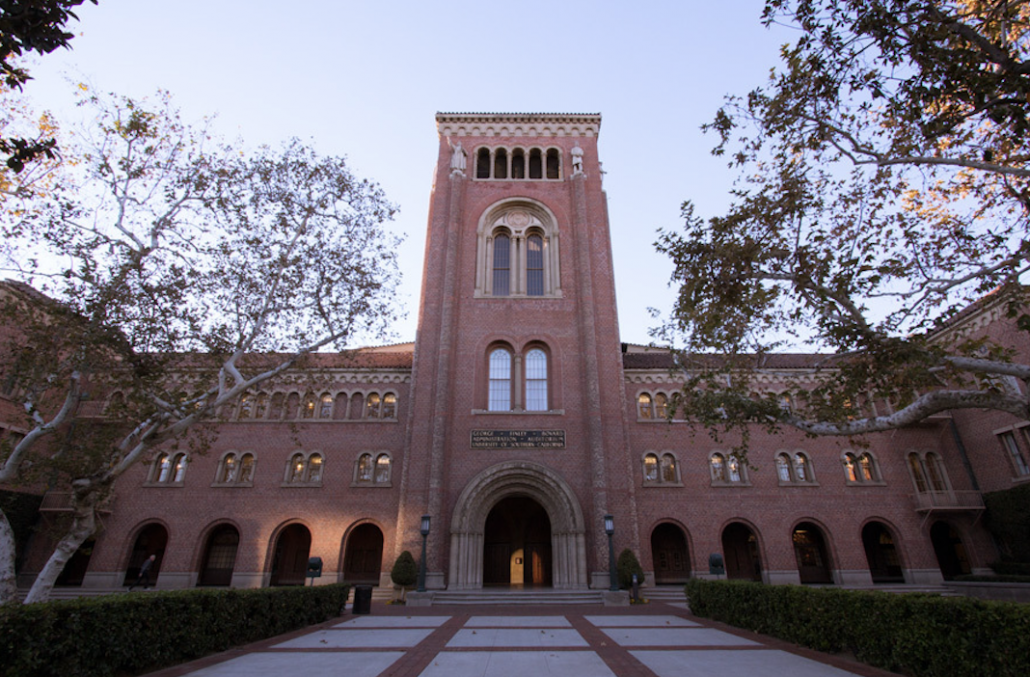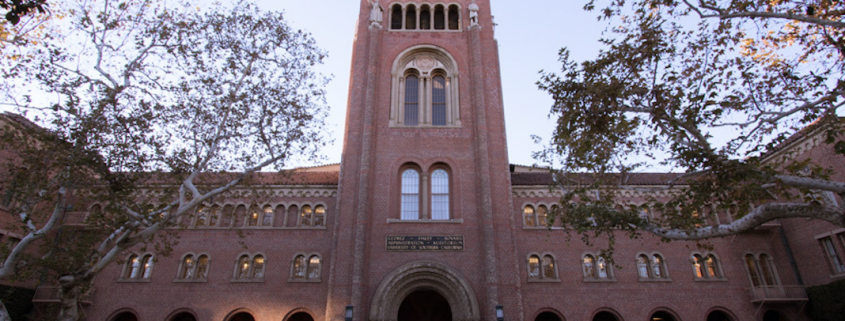Affidavit shows USC officials missed red flags in scheme

When the FBI uncovered the largest college bribery scheme in American history from its “Operation Varsity Blues” investigation, it seemed like the perfect scam.
Wealthy parents paid William “Rick” Singer, who had connections with athletics faculty at top universities like USC, to create falsified athletic profiles for their children and have them admitted as athletes.
While 33 parents were named in the indictment, Singer had 700-plus clients from 2011 to 2019, court documents read. By the numbers, the scheme went undisturbed until the FBI was tipped off during a separate investigation. But according to the affidavit, there were warning signs at USC and other universities that could have tipped admission officials off before the FBI got involved.
Despite emails from high school counselors and college coaches who questioned the students’ athletic resume or if they were actually on the roster, Singer’s scheme remained intact, and the students matriculated.
At USC, former senior associate athletic director Donna Heinel, who was terminated the day the investigation was released, presented fake athletic profiles to the admission committee and advocated for the students’ admission, as she would with all student-athletes.
William Tierney, co-director of the Pullias Center for Higher Education, referred to the scheme as a “masterful scam.”
“What [Singer] discovered is the weak link because it wouldn’t have worked … if you were just a regular student applying and went to the admission office this would not have happened,” Tierney said. “So he was a brilliant guy, I mean what a crook.”
“Fuller House” actress Lori Loughlin and her husband, fashion designer Mossimo Giannulli, paid $500,000 to have their daughters, Isabella and Olivia Jade, admitted to USC as women’s crew recruits, despite no rowing experience.
According to the FBI documents, their guidance counselor believed the girls’ applications may have contained “misleading information” because she believed neither of them had the experience to have been characterized as athletic recruits. Loughlin later emailed Singer asking for assistance in Olivia Jade’s college applications.
After Olivia Jade received her official acceptance to USC, the high school counselor emailed Giannulli, saying that he had been in contact with a senior assistant director of admissions at USC and Giannulli. He said their daughter was a coxswain on the team.
Devin Sloane, the founder and CEO of waterTALENT, started working with Singer in 2017 to guarantee his son’s admission to USC as a water polo recruit. Records show Sloane purchased water polo gear on Amazon. He later emailed a graphic designer to modify an image of his son to appear like a water polo player for a false recruiting profile.
In November 2017, Heinel presented Sloane’s son to the USC subcommittee for athletic admissions and sent a conditional acceptance letter to Sloane’s son. Sloane paid Heinel $50,000 and sent an additional $200,000 to the Key Worldwide Foundation, which allegedly worked to conceal bribes as donations, after his son received an official acceptance late last March.
Quickly after, his high school counselor emailed him and his father asking what universities he was admitted to. Sloane forwarded the email to Singer, asking what he should say in order to avoid suspicion from the high school, according to FBI documents.
“They know about USC,” Singer wrote back to Sloane. “One of the counselors questioned [your son] getting in as water polo player this week. My folks at [U]SC called me, so we could restate [your son] playing in Italy as [his high school] does not have a team.”
After hearing about the issues with the high school counselors, Heinel left a voicemail for Singer, expressing her concern that the bribery scheme could be uncovered. She told Singer the students should say they were walk-ons for their respective sports and look forward to trying out for the team.
“So I just don’t want anybody going into … [Sloane’s son’s high school] and [the Giannulli’s daughters’ high school] yelling at counselors,” Heinel said. “That’ll shut everything down.”
According to Tierney, unlike the general admission process, athletic departments often recruit specific athletes even if they do not meet the school’s typical criteria. Tierney said USC should no longer place the responsibility of presenting applicants to the admission committee onto only one faculty member like Heinel.
“I think this needs to be some type of cross campus committee that oversees this, so that there’s faculty involvement in it, that there’s the admissions office involved in it and the athletic department rather than simply this one person at the top of a pyramid who was able to add names because it’s worth $100,000 to her,” Tierney said.
Julie Posselt, an associate professor of education, said schools like USC should change their own standards for admission to expect similar academic standards from all applicants.
“I think an important part of what happened here is that students who wouldn’t have been admitted because of their academics were allowed to be considered via athletics,” Posselt said. “Some universities are beginning to work toward having a certain threshold of academics for even the athletes to be considered on. I’d like to see USC move in that direction personally.”
On March 16, USC announced it will conduct a case-by-case review of all students connected to the scheme, as well as an internal investigation to reform areas such as the student-athlete admission process.
Posselt said many colleges have already begun to change admissions processes by eliminating standardized testing requirements. She said she hopes the FBI’s investigation will push universities to reevaluate the factors they consider in the admission process.
“There’s already a serious degree of introspection going on on the part of colleges and universities about what they’re looking for and why and what the implications are of how they have thought about merit,” she said. “What happened with the admissions scandal only elevates the need to have conversations like that.”

